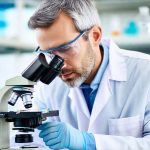The prostate gland, a small walnut-shaped organ in men, can be susceptible to inflammation known as prostatitis. This condition presents with a range of uncomfortable symptoms, including pain in the pelvic region, difficulty urinating, and sexual dysfunction. Simultaneously, colon cleansing – often promoted for detoxification or improved health – involves flushing the large intestine with fluids, aiming to remove accumulated waste. The seemingly disparate worlds of prostate health and digestive detox can unexpectedly intersect, raising concerns about whether a colon cleanse might inadvertently worsen prostatitis symptoms. Understanding this potential connection requires delving into the intricate relationship between the gut microbiome, pelvic floor muscles, and inflammatory responses within the body.
Many men seeking relief from chronic prostatitis find themselves exploring various alternative therapies alongside conventional medical treatment. This often stems from frustration with limited success or undesirable side effects from traditional approaches. The appeal of colon cleansing lies in its promise of a “fresh start” for digestive health, potentially leading to improved overall wellbeing. However, the physiological stress induced by colon hydrotherapy and the disruption of the natural gut flora raise legitimate questions about its impact on conditions like prostatitis, where inflammation is already a central issue. This article will explore these complexities, examining how a colon cleanse could exacerbate symptoms in some individuals, while emphasizing that more research is needed to establish definitive conclusions.
The Gut-Prostate Connection: A Complex Relationship
The connection between the gut and prostate might not be immediately obvious, but emerging evidence highlights a surprisingly strong link. This bidirectional relationship operates through several mechanisms. Firstly, the gut microbiome – the trillions of bacteria residing in our digestive tract – plays a crucial role in modulating immune function. An imbalance in this microbial ecosystem (dysbiosis) can trigger systemic inflammation that potentially extends to the prostate gland. Secondly, the pelvic floor muscles are integral to both bowel and bladder control, as well as sexual function. Manipulation during colon cleansing can directly impact these muscles, leading to spasms or increased tension that contribute to prostatitis symptoms. Finally, changes in intestinal permeability (“leaky gut”) allow for the passage of bacterial toxins into the bloodstream, further fueling inflammation throughout the body.
Colon cleansing, by its very nature, disrupts the delicate balance within the gut microbiome. The forceful flushing eliminates both beneficial and harmful bacteria, leaving the intestine vulnerable to overgrowth of opportunistic pathogens. This disruption can lead to a temporary increase in intestinal permeability, allowing inflammatory molecules to enter circulation. For individuals already struggling with prostatitis, this influx of inflammation could significantly worsen their symptoms. It’s important to note that even “natural” colon cleansing methods aren’t without potential downsides; the introduction of foreign substances or irritants during the process can further exacerbate gut dysbiosis and inflammation.
Furthermore, the physical manipulation associated with colon hydrotherapy – inserting tubes into the rectum and flushing the colon – can directly affect the pelvic floor muscles. The pressure changes and stimulation may cause these muscles to tighten or spasm, contributing to pain, urinary difficulties, and sexual dysfunction, all of which are common symptoms of prostatitis. This is particularly concerning for men with chronic prostatitis/chronic pelvic pain syndrome (CP/CPPS), where pelvic floor tension is often a significant factor.
Potential Mechanisms Worsening Prostatitis
The ways in which colon cleansing might exacerbate prostatitis symptoms extend beyond the gut microbiome and pelvic floor. Here are some specific mechanisms to consider:
- Inflammation Amplification: As mentioned earlier, colon cleansing can trigger systemic inflammation due to microbial imbalances and increased intestinal permeability. This heightened inflammatory state may directly impact the prostate gland, worsening pain and urinary symptoms.
- Pelvic Floor Dysfunction: The physical manipulation during colon hydrotherapy can exacerbate pelvic floor muscle tension, leading to spasms and restricted blood flow in the pelvic region. This can contribute to both prostatitis symptoms and other related conditions like interstitial cystitis (IC).
- Nervous System Activation: Colon cleansing stimulates the autonomic nervous system, potentially triggering a stress response that increases muscle tension and pain sensitivity. In individuals with chronic pain conditions like CP/CPPS, this activation can amplify their existing discomfort.
- Dehydration & Electrolyte Imbalance: Colon hydrotherapy often results in significant fluid loss, leading to dehydration and electrolyte imbalances. These imbalances can further contribute to muscle cramps, fatigue, and overall discomfort, potentially mimicking or worsening prostatitis symptoms.
The Role of the Microbiome in Prostatitis
The gut microbiome’s influence on prostate health is a growing area of research. Studies have shown that men with chronic prostatitis are more likely to have altered gut microbial composition compared to healthy individuals. Specifically, decreased diversity and imbalances in certain bacterial populations have been observed. This suggests that restoring a healthy gut microbiome could be a potential therapeutic strategy for managing prostatitis symptoms.
However, colon cleansing directly contradicts this approach. By indiscriminately eliminating both beneficial and harmful bacteria, it further disrupts the delicate microbial balance within the gut. The subsequent dysbiosis can impair immune function, increase intestinal permeability, and contribute to systemic inflammation – all of which exacerbate prostatitis symptoms. Probiotic supplementation after a cleanse might seem like a solution, but it’s unlikely to fully restore the complex ecosystem that was disrupted. A more sustainable approach involves focusing on dietary changes and lifestyle modifications to support a naturally balanced gut microbiome without resorting to drastic measures like colon cleansing.
What Should Men with Prostatitis Do?
Given the potential risks associated with colon cleansing, men diagnosed with prostatitis – particularly chronic forms – should generally avoid it. Prioritizing proven strategies for managing their condition is far more beneficial. These include:
- Medical Evaluation: Seeking a thorough evaluation from a healthcare professional to determine the underlying cause of prostatitis and develop an appropriate treatment plan.
- Lifestyle Modifications: Adopting a healthy lifestyle that includes a balanced diet rich in fruits, vegetables, and fiber; regular exercise; stress management techniques; and adequate hydration.
- Pelvic Floor Therapy: Consulting with a physical therapist specializing in pelvic floor dysfunction to learn exercises that can help relieve muscle tension and improve urinary control.
- Dietary Adjustments for Gut Health: Focusing on foods that support a healthy gut microbiome, such as fermented foods (yogurt, kefir, sauerkraut), prebiotic-rich vegetables (onions, garlic, asparagus), and fiber-rich grains. Avoiding processed foods, sugar, and excessive alcohol consumption.
- Consider Probiotic Supplementation: Discussing with your doctor whether probiotic supplementation could be beneficial for restoring gut microbial balance, but avoid self-treating or choosing products without professional guidance. can vitamin b deficiency can also play a role in overall health.
It’s crucial to remember that colon cleansing is not a substitute for conventional medical treatment or healthy lifestyle habits. While some individuals may experience temporary relief from digestive symptoms after a cleanse, the potential risks – especially for those with underlying health conditions like prostatitis – outweigh the benefits. A proactive and informed approach to prostate health involves working closely with healthcare professionals and adopting sustainable strategies that promote long-term wellbeing. can constipation worsen other conditions as well, highlighting the gut-bladder connection.
Disclaimer: This article provides general information only and should not be considered medical advice. Always consult with a qualified healthcare professional before making any decisions about your health or treatment. can you have a uti without symptoms, further complicating diagnosis and treatment?





















